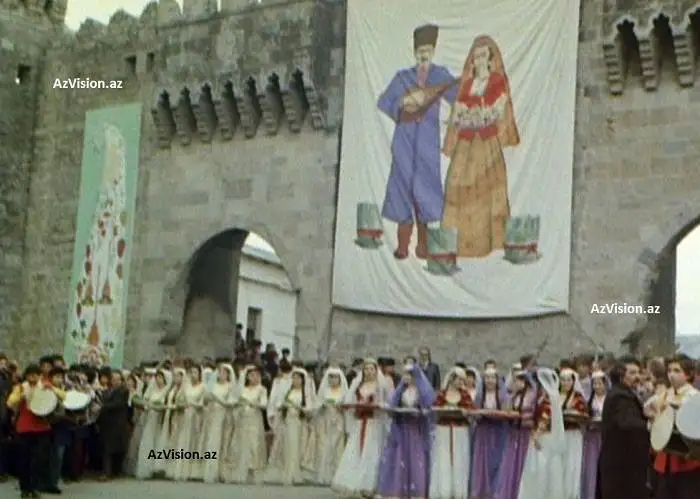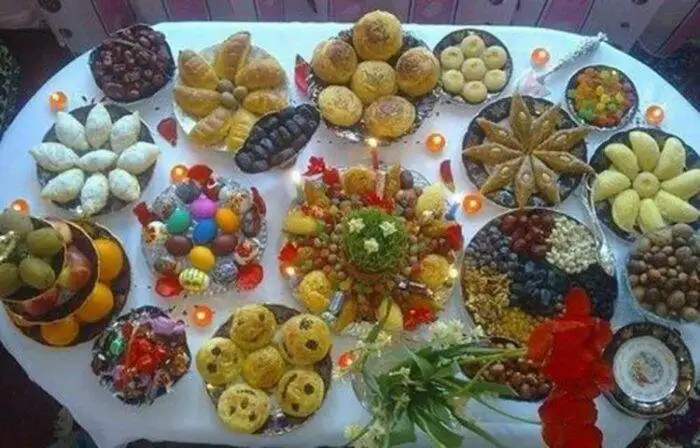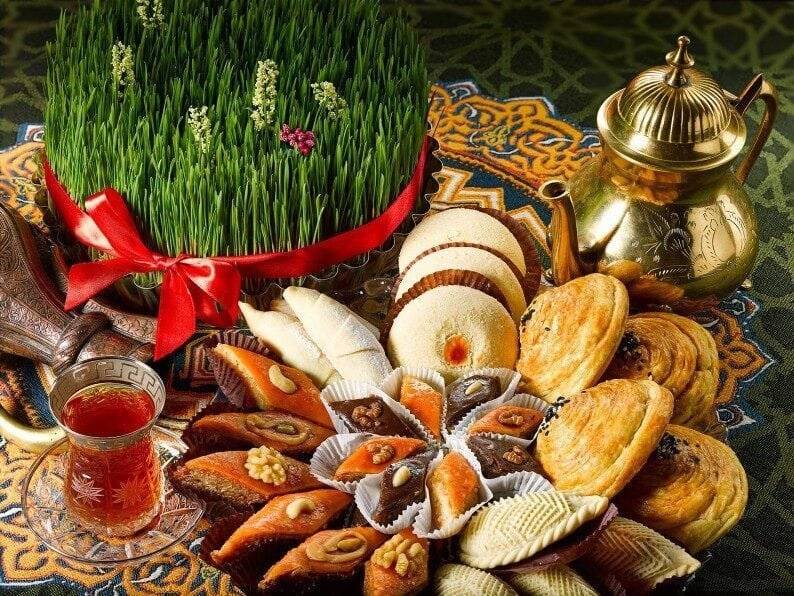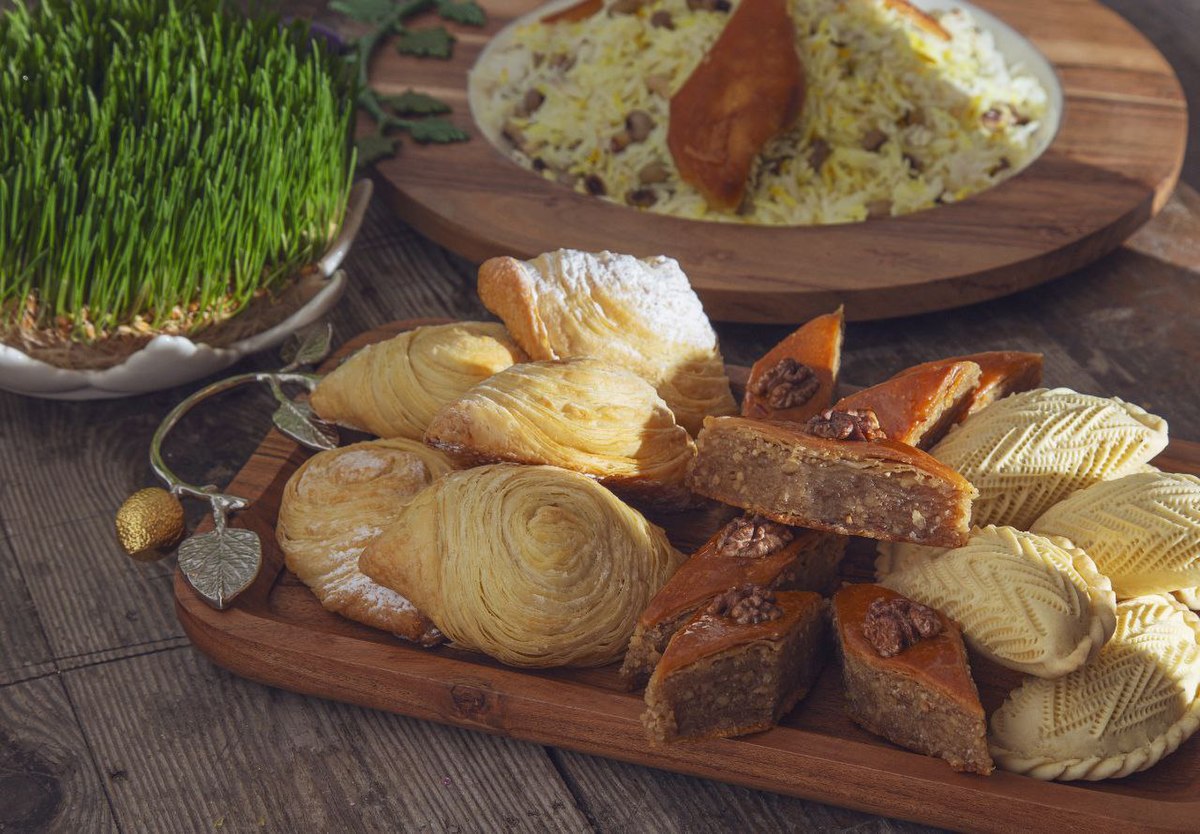The Azerbaijani nation has many festivals that have been celebrated since time immemorial, associated with the harvest, farming and cattle-breeding. Novruz unites all these festivals in some way — it marks the beginning of a new astronomical year.
Novruz (also Novruz Bayram) is one of those festivals that are particularly revered and loved in Azerbaijan. The reason for such popularity of Novruz can be explained by the democratic philosophy of the holiday: this is not only a time of vernal equinox and the renewal of nature, but it is also a holiday of equality of people, their unity and belonging. Nowruz is celebrated in the family circle, with relatives and close friends. On these days it is customary to forgive those who need forgiveness. People go to each other, exchange sweets and gifts, positive emotions and holiday spirit.
Novruz is celebrated for five days, including March 20 and 21, the days of the vernal equinox. Specific days of the holiday for the coming year are determined in December and announced immediately to the public. However, according to an ancient tradition, people start to prepare for the feast in February, preparing their homes and minds. The celebrations themselves continue on the days of the equinox and a few days after the new solar year arrives. For five whole days in Baku and other Azerbaijani cities, festivities and spectacular celebrations continue.
History of Novruz
Novruz has been celebrated in Azerbaijan since time immemorial. Thus, some of the customs associated with the celebration — such as the collective performance of the Yalli dance and jumping over a bonfire — are depicted in the rock carvings of Gobustan, on the rocks of the oldest hearth of world civilization. Many residents of villages located near Gobustan, go to the rock carvings in the days of Novruz to perform the holiday rituals there.
The history of the holiday has not always been easy. There were periods when the people were forbidden to celebrate the days of vernal equinox. Thus, during the Soviet regime Novruz Bayram, as a vivid expression of the national spirit of Azerbaijan, was prosecuted by the authorities — it was officially banned to celebrate the holiday. But Azerbaijanis did not abide by the ban; in many families the tradition of celebrating Novruz is sacredly honoured. Today the holiday is celebrated officially and on a large scale — throughout the country.

Where does Novruz come from? The history of Novruz dates back to ancient times, when the Zoroastrian religion (the religion of fire worship) was just beginning to emerge. And many of the traditions of Novruz stem from there.
Thus, the national symbol of Azerbaijan — Yanar Dagh, which burns in all weather: neither wind, rain nor snow can extinguish this fire. And the symbol of fire is also an important part of Novruz holiday. Azerbaijan, the land of fire, has been a place where different religions and cultures have intersected for millennia, and the people of Azerbaijan have managed to carry the traditions of their fire-worshipping ancestors through the centuries. Novruz is one of those traditions, which has been preserved to this day. It has been not just kept, but honoured. Thus, the importance of Nowruz has been recognized by UNESCO — in 2009 the organization included Novruz in the Representative List of Intangible Cultural Heritage.
Novruz treats
An integral part of Novruz celebrations are family and restaurant meals, where dishes of national cuisine are interspersed with special holiday sweets. Shaker bura — biscuits with spicy nut filling, bishi — sweet puff pastry, shor chorey — puff pastry with spicy filling, baklava, vesli — puff pastry, kulchu — spicy sweet bread, halva from sprouted wheat.
It is one of the most delicious holidays celebrated in Azerbaijan. On these days, Azerbaijanis dye boiled eggs, prepare various sweets, and dress up the khoncha, the treats collected on a tray. The main dish of the holiday is pilaf. In addition, according to customs, the table must contain dishes consisting of 7 elements: spice, milk, vinegar, wheat sprouted in the plate, herbs — the names of all these products in the Azerbaijani language begin with the letter «S».
Customs and traditions of Novruz
On the eve of Novruz, usually the last Thursday before the holiday, they hold a «gara bayram» to remember all the family members who died during the past year.
On the first day of Novruz, everyone wishes each other a happy New Year and treats each other to sweets. There’s also the tradition of beating boiled eggs to test their strength.
One of the rituals associated with cattle breeding is tying the horns of bulls, cows, and rams that have been picked out for weddings with red cloth. Cutting animals to death during Novruz is prohibited. On the contrary, during Novruz one should take special care of animals by feeding them better feed than usual and dressing their horses.
Also, during these days it is prohibited to lie, judge, and use foul language. Statistics from law enforcement agencies in Azerbaijan show that during Novruz festivities the number of crimes in the country drops sharply.
The unwritten rule of Novruz is to reconcile all who quarrel without intermediaries. During these festive days, it is considered a sin not to forgive someone who has confessed his guilt.
From morning to night during Novruz celebrations on the streets of Azerbaijani cities are festivities. Folk singers sing, games are held, wrestlers compete, rope-walkers demonstrate their skills to the public, and plays are staged in the squares. In the countryside, there are cockfights and horse races.
When the sun sets, bonfires erupt in the streets and courtyards, people light them, hold hands, jump over the bonfire and dance around it, believing that the cleansing flames will devour ailments and evil. Jumping over the bonfire is accompanied by special prayers asking permission to consume failure, pain and grief and to leave all the troubles of the past year behind, not carrying them into the coming year. The festival itself is celebrated at home, with the family, if possible.

Sources used in the preparation of this article:
Нажмите для доступа к 090628190625.pdf
ru.euronews.com/next/2011/03/23/fire-in-the-heart-azerbaijan-celebrates-novruz
Teilen mit / Поделитесь
- Нажмите, чтобы открыть на Facebook (Открывается в новом окне)
- Нажмите, чтобы поделиться в Telegram (Открывается в новом окне)
- Нажмите, чтобы поделиться в WhatsApp (Открывается в новом окне)
- Нажмите, чтобы поделиться на Twitter (Открывается в новом окне)
- Нажмите, чтобы поделиться на Reddit (Открывается в новом окне)
- Нажмите, чтобы поделиться записями на Pocket (Открывается в новом окне)
- Послать ссылку другу по электронной почте (Открывается в новом окне)
- Нажмите для печати (Открывается в новом окне)
- Ещё
Больше на Masim💛v
Подпишитесь, чтобы получать последние записи по электронной почте.
Похожие записи:
- Yashil Bazaar in Baku Azerbaijan - Green bazaar of…
- Azerbaijan's 10 must-see cities for tourists -…
- Country life vlog in Azerbaijan - Who are they?
- Molokan village Ivanovka in Azerbaijan
- The most beautiful villages and hamlets in Azerbaijan
- Albanian Church and Kish village in Azerbaijan
- Chukhuryurd (Chukhur Yurt): Last Molokans of…
- How Mountain Jews live in Azerbaijan - Krasnaya Sloboda

 Азербайджанская пахлава; Фото: Sefer Azeri
Азербайджанская пахлава; Фото: Sefer Azeri  Сладости: слева на право: Бадамбура, пахлава и шакарбура. Фото:
Сладости: слева на право: Бадамбура, пахлава и шакарбура. Фото: